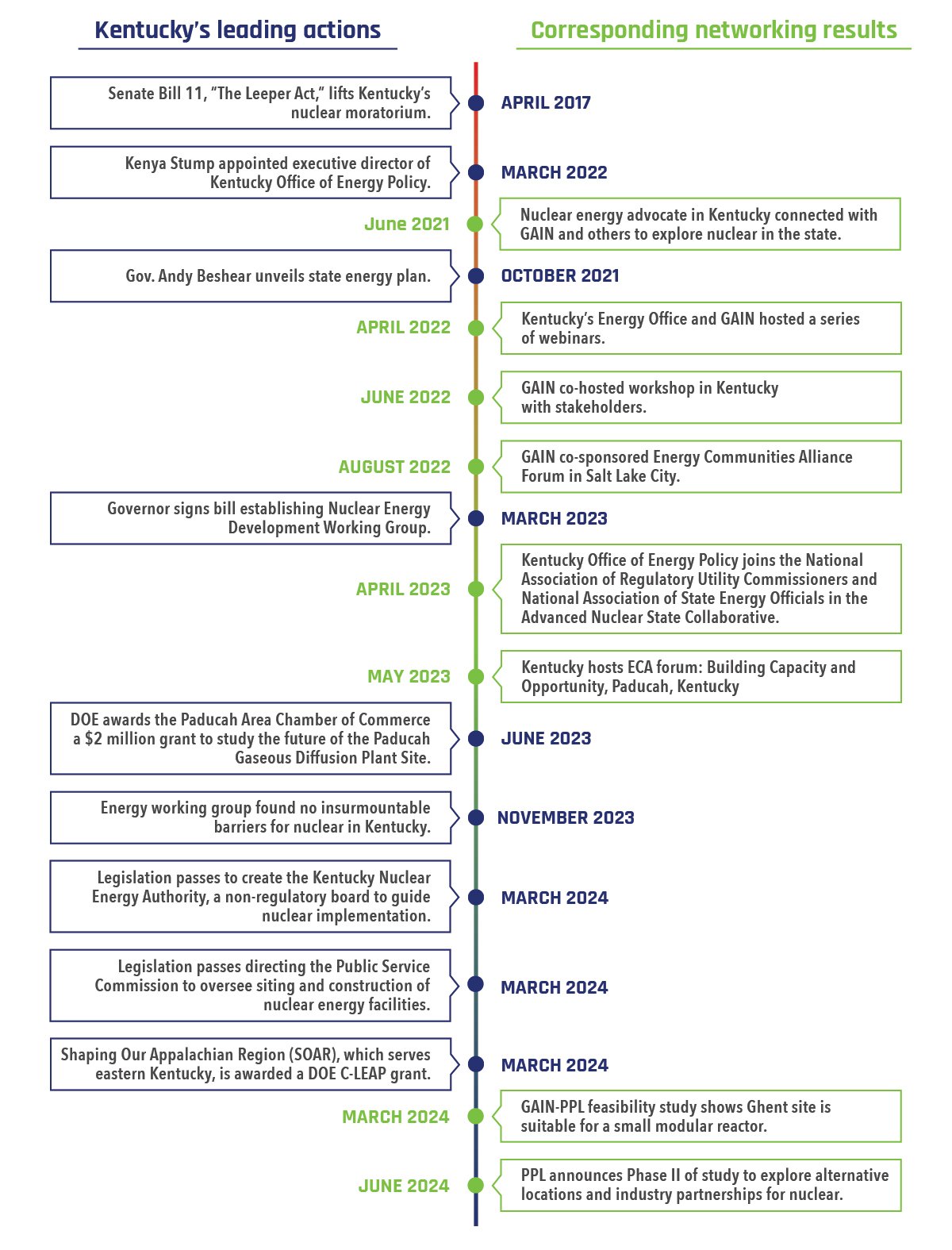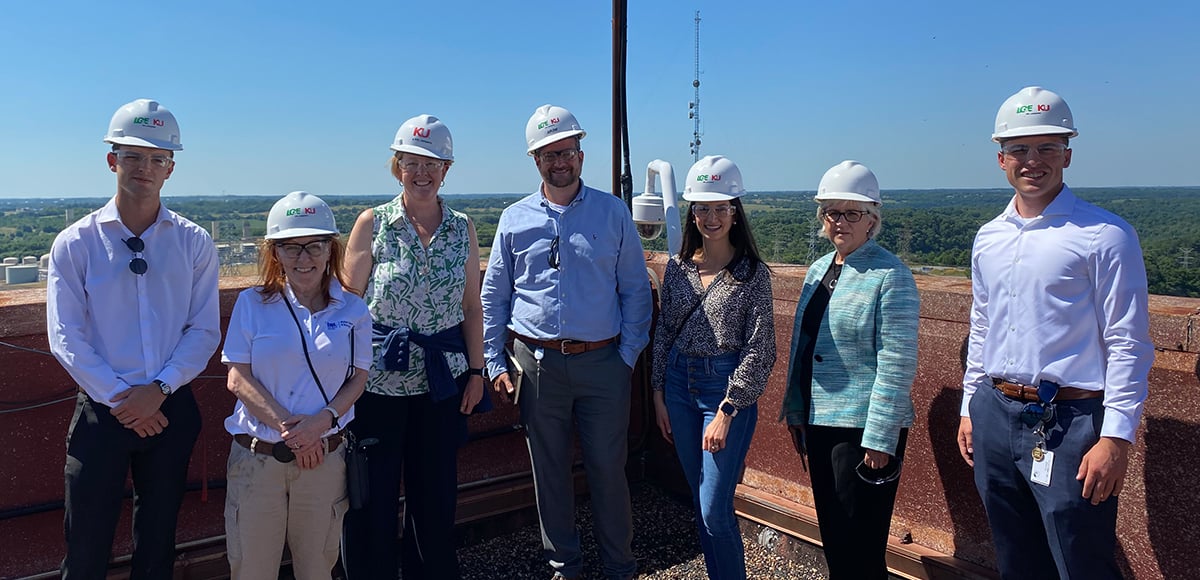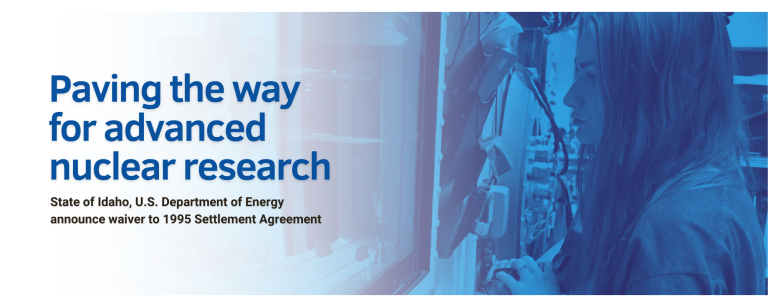Kenya Stump, an executive with the Kentucky Energy and Environment Cabinet for over 17 years, has seen the volatility of coal as an energy source: shrinking demand, plant closures, job losses and tougher pollution controls.
Utilities have responded to that pressure by relying more on natural gas plants because they are cheaper and cleaner than coal. Kentucky is also home to other energy-intensive manufacturing processes and a growing commercial sector.
“We don’t want to be left with gas as our only baseload resource,” Stump said. “Therefore, we are driven to look to nuclear if we are forced to move away from coal.”
Stump, executive director of Kentucky’s Office of Energy Policy since 2020, is a cheerleader for diversified energy sources like coal, natural gas, wind, hydroelectric and solar. But what was missing in Kentucky’s “all of the above portfolio”? Nuclear energy.
“It was glaringly obvious that the only nuclear energy that we had really came from TVA,” Stump said.

Tennessee Valley Authority, which supplies power to south central and western Kentucky, generates most of its electricity from hydroelectric dams. It also has three nuclear plants, one in Alabama and two in Tennessee.
“So even though we are ‘all of the above,’ we are actually not implementing ‘all of the above,’” said Stump. “We value baseload clean power options in our ‘all of the above’ strategy.”
In 2021, Julian Colvin, at that time a nuclear engineering student at North Carolina State University, began aggressively lobbying Kentucky lawmakers and energy policymakers to embrace advanced nuclear technology. That led to a partnership between Kentucky’s Energy Office and the U.S. Department of Energy’s Gateway for Accelerated Innovation in Nuclear (GAIN), based at Idaho National Laboratory (INL).
GAIN co-hosted a series of webinars with utilities, culminating in a June 2022 workshop in Kentucky’s capital of Frankfort. Utility executives, state government leaders, elected officials and environmental non-profits decided the time was right to pursue nuclear energy.
“Out of that, our stakeholders said, ‘We need to fly our flag, and let the world know Kentucky wants to do something with nuclear,’” Stump said.
In the past two years, Kentucky has come a long way. The state’s largest utilities are looking at siting an advanced nuclear reactor at one of their existing power plants.
“We’ve cleared the runway,” Stump said. “Now all we have to do is land the plane.”

Kentucky’s bipartisan support
Kentucky has taken steps toward nuclear power since 2017 when state Sen. Danny Carroll sponsored legislation to remove a state moratorium that had blocked construction of new nuclear power plants.
Six years later, Carroll won unanimous passage of a joint resolution that created a nuclear energy development working group in the state.
“Over recent years, we have seen the interest in nuclear energy explode, not just throughout this country, but throughout the world,” Carroll told National Public Radio’s WKMS. “We decided to form a working group to get us where we needed to go, to study the issues on the technology that would be acceptable for our commonwealth and not just looking at the idea of bringing nuclear energy to the commonwealth — but also focusing on the nuclear industry.
“That’s when the party really got started,” Stump said.







